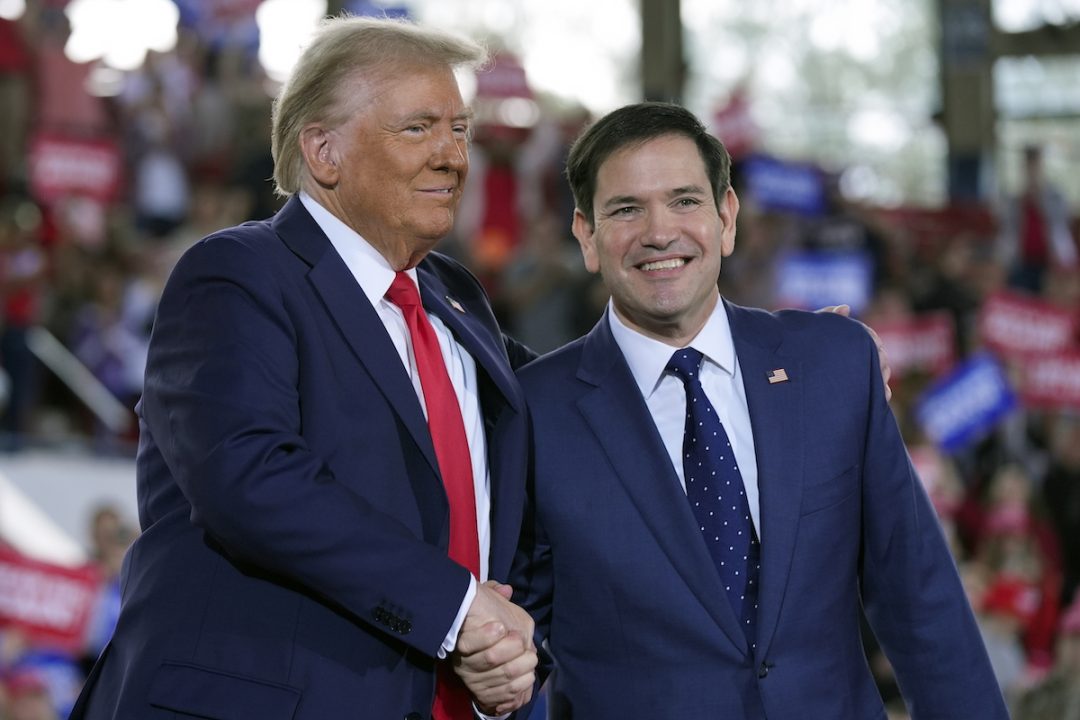
President-elect Donald Trump announced that Senator Marco Rubio (R-Fla.) will serve as secretary of state in his second administration, stating in a Trump-Vance transition press release:
It is my Great Honor to announce that Senator Marco Rubio, of Florida, is hereby nominated to be The United States Secretary of State. Marco is a Highly Respected Leader, and a very powerful Voice for Freedom. He will be a strong Advocate for our Nation, a true friend to our Allies, and a fearless Warrior who will never back down to our adversaries. I look forward to working with Marco to Make America, and the World, Safe and Great Again!
In response to the announcement, Rubio said he will work to carry out Trump’s foreign-policy agenda, stating in a post on X:
Trump’s announcement is a dramatic change from 2015, when he said Rubio was a “highly overrated” politician, and remarked that he wouldn’t hire him to run one of his smaller companies, stating in a post on X:
Former Representative Ron Paul (R-Texas) responded to the nomination, questioning Trump’s decision, stating in a post on X, “Marco Rubio? … Really, Mr. President?”, and stated politically Rubio is an authoritarian:
The Trump-Vance transition press release also included a biography on Rubio:
Senator Marco Rubio Biography:
Marco Rubio was born in 1971 in Miami, Florida as the son of two Cuban immigrants pursuing the American Dream. His father worked as a banquet bartender, while his mother split time as a stay-at-home mom and hotel maid. From an early age, Rubio learned the importance of faith, family, community, and dignified work to the good life.
Rubio was drawn to public service in large part because of conversations with his grandfather, who saw his homeland destroyed by communism. After meeting and marrying his wife Jeanette — and earning degrees from the University of Florida and the University of Miami Law School — Rubio served as a city commissioner in West Miami and Speaker of the Florida House of Representatives. In 2010, he won a seat in the U.S. Senate.
During his first term, Senator Rubio experienced the Washington gridlock. Efforts at reform met tough resistance from extreme partisanship and an engrained elite establishment, both of which benefited from the status quo. Senator Rubio also saw firsthand the communities the establishment had left behind: towns and cities devastated by the loss of dignified work and corroded by a culture that had forgotten the need for faith, family, and community.
But those experiences didn’t discourage Senator Rubio—they only strengthened his determination to revive the American Dream for hardworking Americans. Now in his third term, he continues to enact common-sense policies that create good jobs, strengthen communities, and protect Americans from the Chinese Communist Party.
In addition to providing award-winning constituent service, Senator Rubio has authored hundreds of new laws, including some that are truly transformational. He led the effort to reform the U.S. Department of Veterans Affairs and provide health care benefits to veterans suffering from toxic burn pit exposure. He doubled the federal child tax credit for working families. He kept millions of small businesses afloat during the pandemic lockdowns, through the historic Paycheck Protection Program. And he secured generous funding for Everglades restoration efforts.
Senator Rubio also wrote and passed the Uyghur Forced Labor Prevention Act, which represents the greatest turning point in U.S.-China relations in decades. For these achievements and more, the Center for Effective Lawmaking consistently ranks Rubio among the three most effective senators in Congress.
Fighting partisan gridlock and elite complacency is never easy, but Senator Rubio is honored to serve his country and the people of Florida. Every day, he wakes up determined to make it easier for you and your family to pursue the American Dream. He will not stop until American politics is once again centered on common sense and the common good.
Rubio was first elected to the U.S. Senate in 2010, riding the “Tea Party” wave that led to gains for the Republican Party in Congress. During his tenure in the Senate, he has earned a cumulative score of 66 percent on The New American’s Freedom Index.

